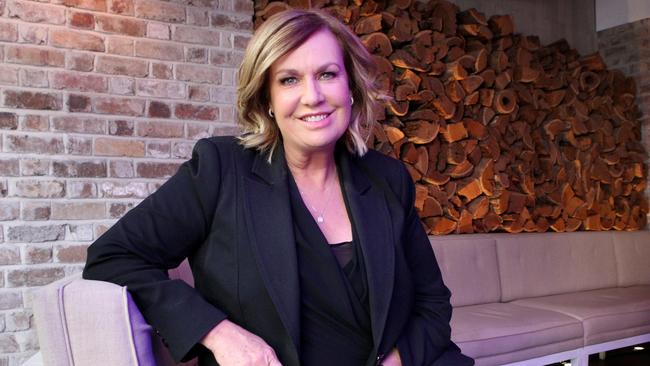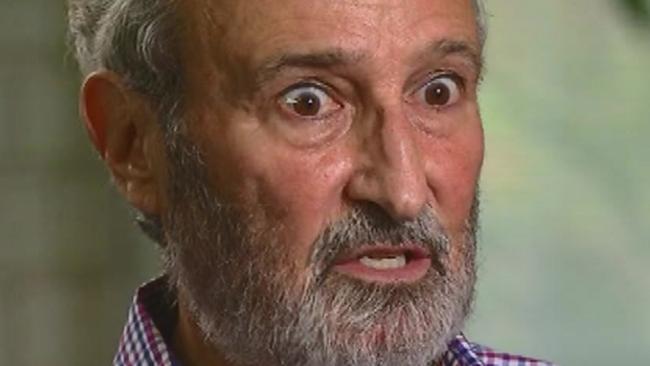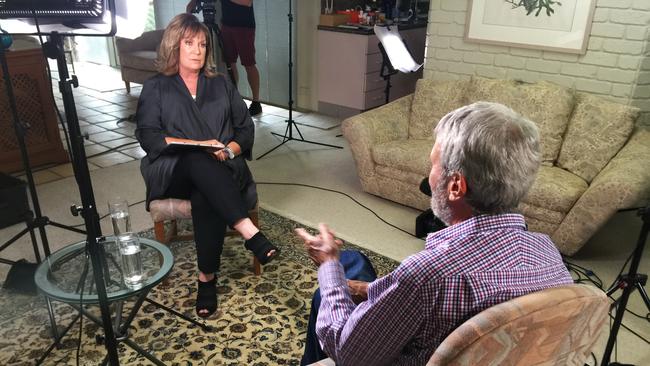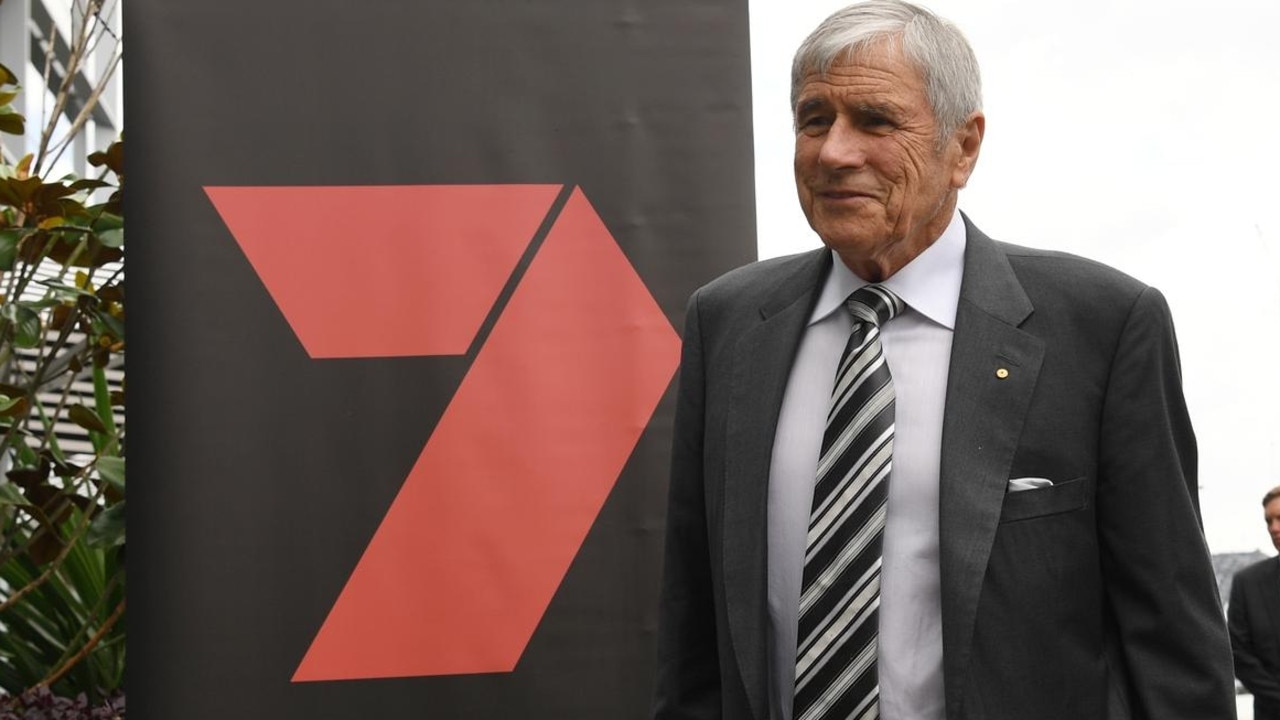Nine not a bullying culture, says Grimshaw after Burke ‘masterclass’
Tracy Grimshaw says Don Burke ‘probably thought they had a rapport’ when he chose her for an interview.

The confirmation call came through at 10.30am and by 1.15pm Tracy Grimshaw was sitting opposite Don Burke at his home in Sydney’s semi-rural outskirts for an interview that enhanced her reputation while crushing his.
At the front door, Grimshaw, host of Nine’s A Current Affair for 11 years, had been met by Burke’s wife Marea, whom she had interviewed two years ago in very different circumstances, when the couple had revealed her near-fatal illness. Marea gave Grimshaw some bombshell news — Burke had cheated on her, they had reconciled and that topic was fair game to ask about.
Grimshaw was worried. “Please don’t tell me that you sorted that out in the last week, please tell me that you sorted that out a long time ago,” she recalls saying.
But on-screen Grimshaw wasn’t interested. “I didn’t see that as relevant to allegations that were being levelled against him that day,” she said.
Her interview with the genial host of Burke’s Backyard, one of the biggest TV stars of his day for almost 17 years from the 1980s to 2004, was riveting viewing last Monday and widely regarded as a car crash for the former TV star, who faced serious on-the-record accusations of sexual harassment from women as well as criticism from his former bosses at the Nine Network. Burke, 70, has denied all allegations of harassment or indecent assault and has engaged defamation lawyers but admitted to bullying.
“They had known this was coming for about a month,” Grimshaw told The Australian last week. “I thought Don looked really crook. I think he looked very skinny. The pressure had taken a toll. He had time to prepare for it and probably a bit of time to worry about it,” Grimshaw said, adding Burke and his wife became aware of the allegations when Fairfax and the ABC started their investigations.

On air, Grimshaw gave no indication as to the rushed nature of her preparations. “I think I had enough time to arm myself with the relevant facts” which included a detailed account of allegations in The Sydney Morning Herald by Kate McClymont and on the ABC, but also, her own research with past and present staff at Nine, where she worked for 36 years.
Grimshaw had first met Burke in the 1990s, when she hosted the Today Show and he was one of Nine’s top stars and they were both in training for the Adelaide Grand Prix celebrity race. “There was nothing untoward honestly,” she said of his behaviour. The pair knew each other but didn’t socialise.
“I guess he probably felt we had established a rapport and I would give him the most sympathetic hearing; that’s why he chose to speak with me.”
Some regarded her interview as a TV masterclass. “There is no such thing as interviewing 101, a cookie-cutter interview. If you took the same approach interviewing everyone you wouldn’t be very successful,” Grimshaw said.
“Every interview is different in its own way — that’s why I love interviews.
“People are challenging, reticent, shy or intimate or have something to hide or are bullish. Some are adversarial. It presents a challenge.”

Grimshaw won a Walkley award in 2009 for a trio of interviews including one with Matthew Johns in the wake of a group sex scandal involving a group of rugby league players and a 19-year-old woman.
“His circumstance was different to Don Burke’s although people were drawing comparisons,’’ Grimshaw said.
“Matthew Johns’ incident was very different. He was not denying what had happened in the hotel room; he was saying his interpretation was very different. Whereas Don was saying he had done bad things but not these bad things.
“As an interviewer you are going through and looking for evasions. You want someone to stump up answers to questions. If you get evasions, your job is to navigate around evasions and turn those evasions into some sort of truth.
“He (Burke) couldn’t remember what had happened 20 or 30 years ago, but he could categorically say none of those things happened. They just seemed to be evasions to me so you keep plugging away until you get somewhere near the truth.”
Shifting the interview to more general topics, including Nine’s culture of sexism and bullying, which chief executive Hugh Marks addressed last week in setting up a helpline for Nine staff, I asked: What is it about television that turns people into monsters?
“I don’t think I would want a quote ascribed to me that suggested that television turns people into monsters. I think you get monsters in any industry,” Grimshaw said.
“I think if you don’t have a handle on your ego and you have a bit of success in TV, it can present a bit of a perfect storm if you are not grounded in who you are.
“Success in television, it provides money, it provides a bit of adulation, recognition, access all areas, power. Those kind of things applied to an unhealthy ego can set up pretty bad results.”
Asked about the reputation of Nine as a boys’ club and its bullying culture, Grimshaw demurs.
“I don’t know that has been my experience, to be honest with you. I have heard all the stories about the boys’ club and other women at Nine will tell you bad stories about the boys’ network but that has not been my experience. I have had a pretty happy time at Nine.”
Grimshaw joined Nine’s Melbourne newsroom in 1981 when she was 21, after working for a suburban newspaper group. “The Melbourne newsroom was no place for snowflakes: it was run by a guy called John Sorell ... he was a very forthright bloke.”
Sorell, who died in 2009, is one media executive criticised by journalist and anti-harassment campaigner Tracey Spicer in her expose of media executives. In her book The Good Girl Stripped Bare, Spicer alleges Sorell said to her: “I want two inches off your hair and two inches off your arse!”
Grimshaw says: “I haven’t found it a particularly bullying culture, which is not to say people were not bullied. Aged 21 I had not led a sheltered life; I had worked in public bars. That is a pretty robust environment. I walked into a robust environment and I’m still here.”
She acknowledges the 1980s were a different work culture with no human resources departments. “With the Christmas party ... now there are three back-up emails about how to behave.”
Sorell didn’t discriminate between men and women, she said. “He gave me a hard time and I had a lot to learn, but I learnt really fast because I didn’t like being yelled at. After 36 years if it hadn’t been a happy place for me I wouldn’t still be there.”



To join the conversation, please log in. Don't have an account? Register
Join the conversation, you are commenting as Logout